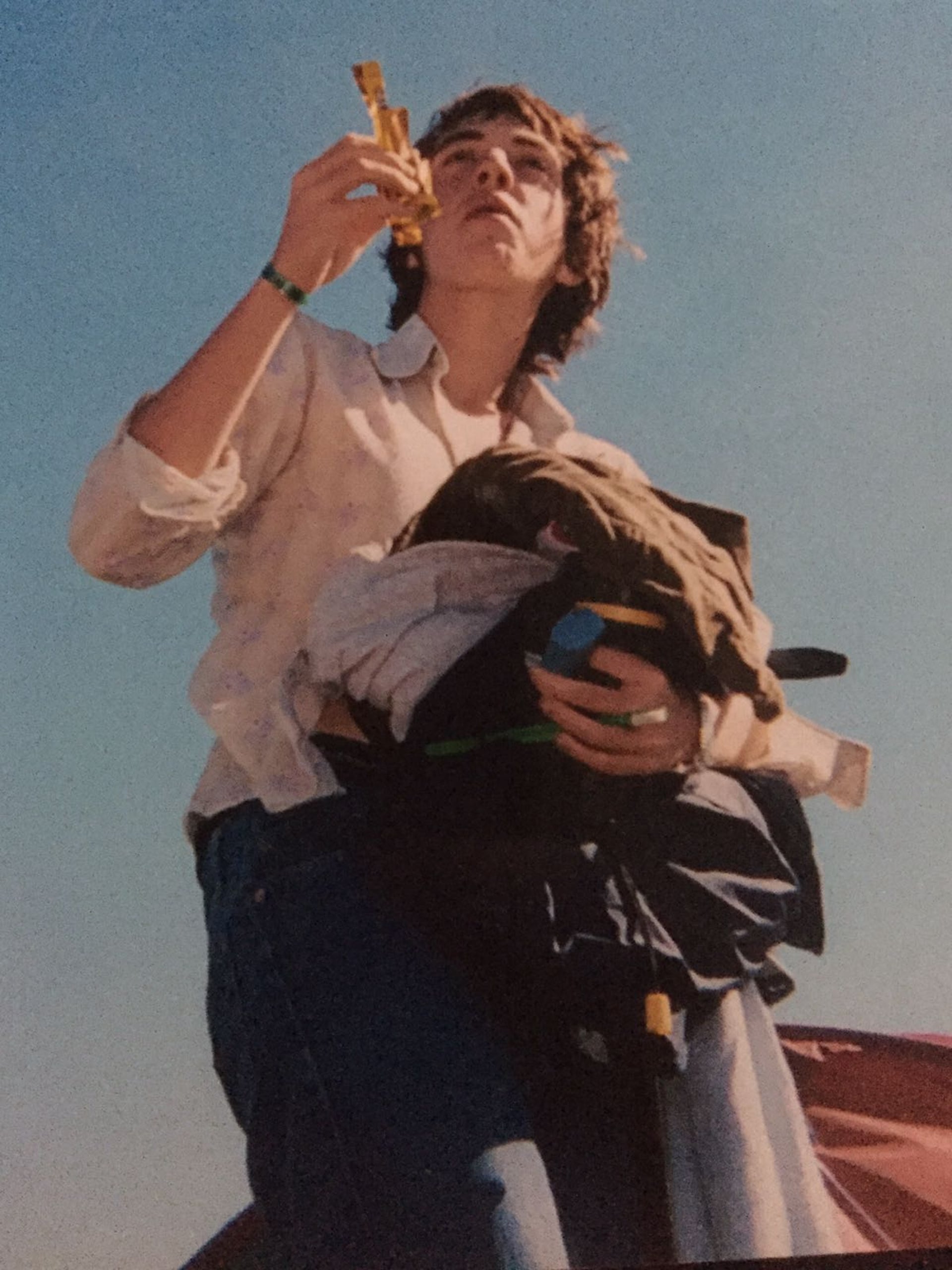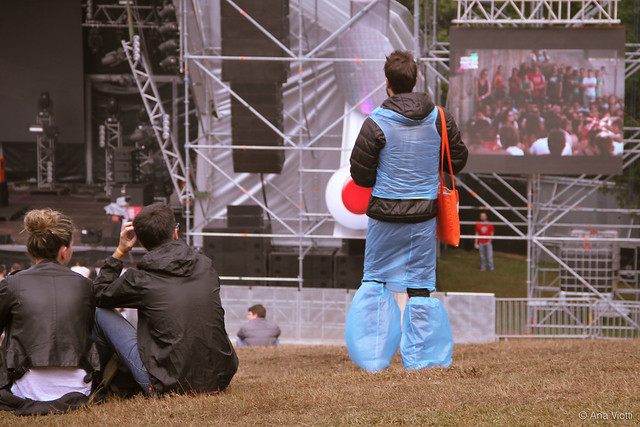

A few weeks ago, The Guardian did a piece on a very peculiar story about Reading Festival and a man who had lost his wallet a number of years ago (precisely fifteen) while at the festival. Nothing extraordinary, really, only the fact that a group of people who had found his wallet managed to make history of this man’s name without him knowing it until now.
This man, Tim Burrows, revealed that one of those who found his wallet contacted him on Facebook after all these years. He then learned not only the 10£ he had on the wallet were spent on cider, but also that this godsend were to be honored by a drinking challenge every year on Reading named after him – The Timothy Burrows Challenge!

Tim at the Reading Festival. Photograph: Will Mudie. Source: The Guardian
To be fair, the wallet has delivered at the lost and found – deprived of money, logically – at the end of the festival, but only after all these year Giles, the man searcher, with the help of the social media, started contacting every Tim Burrows in hope the right man would reveal himself and the debt would be paid back. The actual Tim Burrows, while confessing not even being a fan of cider, took the gesture well, being glad it was put to good use and to not worry about the tenner, and even had a laugh sharing the messages at his twitter.
While this story seems to be more of a private joke to a few festival-goers, the retweets and feedback may reach many more Reading fans and elevate the challenge to a cult around it. This kind of folklore and mythos is common around many festivals and gatherings of people of a certain region or country. In Portugal, “Elsa” is a very well-known name in the country’s festivals circuit, all thanks to a girl who have lost her friends in Sudoeste at the year of 1998. The rest is history and pretty simple to explain: the excessive shouting of “Ó Elsa!” (Hey Elsa!) by her friends managed to echo in the campsite, and it took such large proportions that to this day it may still be heard in any festival of the country.
Travelling up North, back in 2006, the rain pouring down on Paredes de Coura was so intense that kept festival goers inside their tents for a couple of straight days. While outside the camping site it was every man for himself, with rainboots and raincoats selling out in a matter of hours, most tried to wait it out by playing cards, sleeping or listening to music. As the rain seemed to be never ending, a shout of "foooooda-se!" ("fuuuck!") was heard, and quickly spread throughout the site, a perfect reflection of everyone's state of mind. Rain or shine, bouts of profanities can still be heard every year, in the good fashion of the North of Portugal.

Paredes de Coura 2015. Photograph: Ana Viotti
This makes us ask: Is this type of thing also important on the making of a festival and on its brand strength? Maybe, sure the cult following is important and creates a safe pillow to make each edition worth the making. But we wouldn’t call it fundamental. Picking up again on Sudoeste, this festival nowadays shifted really hard on its direction and identity. Where the hippest and coolest acts of the 90s would perform it is now an EDM Summer Camp. Such stories and legends on the camping really couldn’t maintain the previous target crowd. Still, the shift is well assumed and by no means seemed to slow the influx of people to Sudoeste. The promoters input is still the main influence on a festival’s brand, of course. But probably some take you and the loyal followers in the right consideration to listen and together write the plot of your next chapter of your own live music experience. The dream is real.
![Cororavirus: Music Festivals cancelled or postponed (COVID-19) [UPDATE]](https://d26lks5qplj4xk.cloudfront.net/4mqph3ncvvaijqf8o38x5q0axhql)


